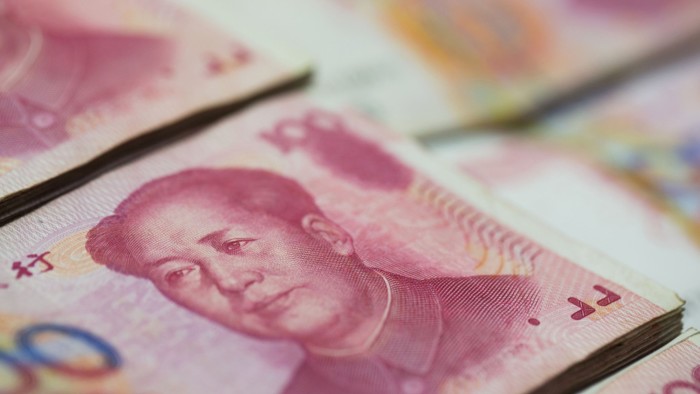Unlock the Editor’s Digest for free
Roula Khalaf, Editor of the FT, selects her favourite stories in this weekly newsletter.
China has fixed the renminbi at its weakest level in 18 months in the first sign it will permit currency depreciation to offset an escalating trade war with the US.
The People’s Bank of China weakened its fixing rate, the centre point of the band in which the currency is allowed to trade, to just below Rmb7.2 a dollar on Tuesday. That is the lowest level since September 2023.
Any significant renminbi depreciation would mark a serious escalation in global trade tension because other countries would come under pressure to mount competitive devaluations of their own.
But many economists believe Beijing is unlikely to go that far because a renminbi devaluation would risk capital outflows and undermine economic stability at home.
The move, which saw the spot renminbi weaken both onshore and offshore, came despite an overall decline in the US dollar against major currencies since US President Donald Trump first unveiled his sweeping tariffs last week.
“The market is now divided into two groups, one thinks inevitably China will have to let the currency adjust a bit, [the second] group says so far the currency has been resilient,” said Ju Wang, head of China foreign exchange and rates strategy at BNP Paribas.
“To devalue or not is purely a Chinese government choice. Will they defend 7.35 [per dollar] or maybe 7.50,” she asked, noting that Rmb7.35 per dollar would represent less than a 3 per cent depreciation on current levels.
Overnight, Trump threatened an additional 50 per cent increase on Chinese exports if Beijing did not back down from its own retaliatory tariffs on the US.
Analysts said Beijing may consider a gradual weakening of the fix rather than a sudden depreciation, which could have a destabilising impact. “A gradual depreciation and ‘reset’ is our base case from here as opposed to a sudden, large adjustment,” said Kaanhari Singh, head of Asia cross asset strategy at Barclays.
During Trump’s first term, China allowed the renminbi to weaken by more than a tenth against the dollar in response to US tariffs imposed from 2018 onwards. Chinese exporters moved to third countries, such as Vietnam and Cambodia, but these are also now facing high US tariffs.
“Unlike 2018, there is much less scope to divert trade and relocate supply chains and to preserve exporter margins,” Singh said. “A gradual currency depreciation is likely to be the preferred policy path ahead.”
Options markets indicate that traders expect heightened volatility in the renminbi. The volatility priced into dollar-renminbi derivatives spiked on Monday to levels not seen since last autumn, implying greater uncertainty over the direction of the currency.

Chinese officials have so far been reserved on their monetary and fiscal policy response to the US move, besides launching a retaliatory tariff of 34 per cent on Friday and export bans on rare earth minerals.
A front-page editorial on Monday in the state-run People’s Daily, a strong indication of policy positions in China, said that Beijing was ready to cut rates and reserve requirements at banks but made no mention of a devaluation.
“The magnitude of renminbi devaluation will also depend on how tariffs on other countries evolve”, said Robin Xing, chief China economist at Morgan Stanley, who said that the currency will see “some pressure” if other countries manage to negotiate down their tariff levels.
Xing also warned that too rapid a depreciation would run counter to Beijing’s other aims of currency stability: increasing domestic confidence and limiting capital outflows.
“I would say the PBoC would try to manage the pace of depreciation, the last thing they want is a self-fulfilling capital outflow and a crisis of confidence,” he said. “That’s something they learnt from 2015.”
One global investor also warned that a steeper devaluation could, in the worst-case scenario, lead to competitive devaluation by other trading economies.
“If it devalues by 10-15 per cent that becomes a big problem as it will trigger devaluation everywhere else,” said the founder of one Asian hedge fund. “How does any company plan anything with that volatility?”
Additional reporting by Cheng Leng in Hong Kong
Read the full article here




